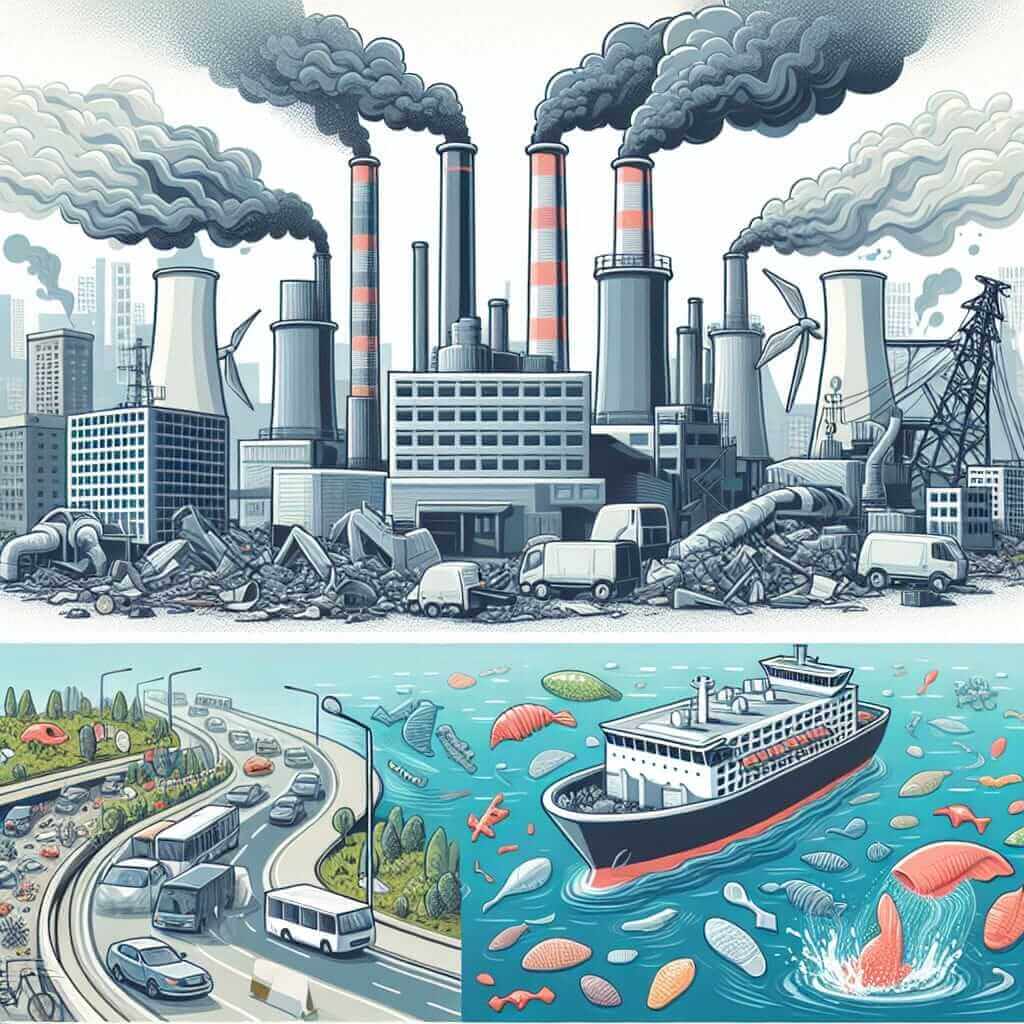The Importance of Environmental Topics in IELTS Speaking
As an IELTS instructor with over 20 years of experience, I can confidently say that environmental topics frequently appear in the IELTS Speaking test. Understanding how to discuss “the effects of pollution on the environment” is not just about showcasing your vocabulary, but also about demonstrating your ability to articulate complex issues and engage in a thoughtful discussion. This is a key skill that the IELTS examiners are looking for.
Breaking Down “Pollution and its Environmental Impact” for IELTS Speaking
Let’s analyze what you need to know to effectively address this topic:
Understanding the Scope
The phrase “pollution and its environmental impact” is broad. You might be asked about:
- Types of pollution: Air, water, soil, noise, light pollution.
- Sources of pollution: Industrial activities, transportation, agriculture, individual habits.
- Specific pollutants: Greenhouse gases, plastic waste, pesticides, heavy metals.
- Environmental consequences: Climate change, biodiversity loss, health problems, ecosystem damage.
Using Precise Vocabulary
Instead of generic terms like “bad” or “harmful,” strive for more precise language:
- To describe severity: detrimental, devastating, hazardous, catastrophic, severe, alarming, concerning
- To discuss consequences: deplete (resources), contaminate (water), endanger (species), exacerbate (climate change), degrade (ecosystems)
- To talk about solutions: mitigate, reduce, prevent, conserve, protect, sustainable practices, renewable energy
Structuring Your Response
Part 1: (Short answers) Be ready to give concise definitions and examples.
- Examiner: What are some common types of pollution?
- You: Common types include air pollution from vehicles and factories, and water pollution from industrial waste.
Part 2: (Long turn) Structure your response logically, perhaps using the “problem-solution” approach.
- Examiner: Describe a significant environmental problem your country faces.
- You: A major issue is air pollution, particularly in urban areas… (describe causes, effects) … To combat this, the government is promoting… (mention solutions, initiatives).
Part 3: (Two-way discussion) Be ready to express your opinions, give reasons, and participate in a more extended conversation.
- Examiner: Do you think individual actions can make a difference in tackling pollution?
- You: Absolutely. While large-scale changes are crucial, individual actions collectively have a significant impact… (explain your viewpoint with examples).

Sample IELTS Speaking Questions and Answers
Let’s look at some examples relevant to the topic:
Question: What do you think is the most serious environmental problem caused by pollution?
Answer: In my view, climate change is the most concerning consequence, primarily driven by air pollution from greenhouse gas emissions. It poses a global threat with far-reaching impacts on weather patterns, sea levels, and ecosystems.
Question: What can individuals do to reduce pollution in their daily lives?
Answer: There are many simple yet effective actions individuals can take, such as opting for public transportation, cycling, or walking instead of using private vehicles. Reducing energy consumption at home by using energy-efficient appliances is also crucial.
Tips for Success
- Stay updated: Read articles and listen to news regarding environmental issues.
- Practice speaking: Record yourself answering sample questions to improve fluency and coherence.
- Expand your vocabulary: Note down topic-specific words and practice using them in sentences.
- Think critically: Develop your own opinions and be prepared to back them up with examples.
Remember, the key to success in the IELTS Speaking test is to demonstrate your ability to communicate effectively on a variety of topics, including environmental issues. By expanding your vocabulary, practicing your speaking skills, and staying informed about current events, you can confidently tackle any question about pollution and its impact on the environment.